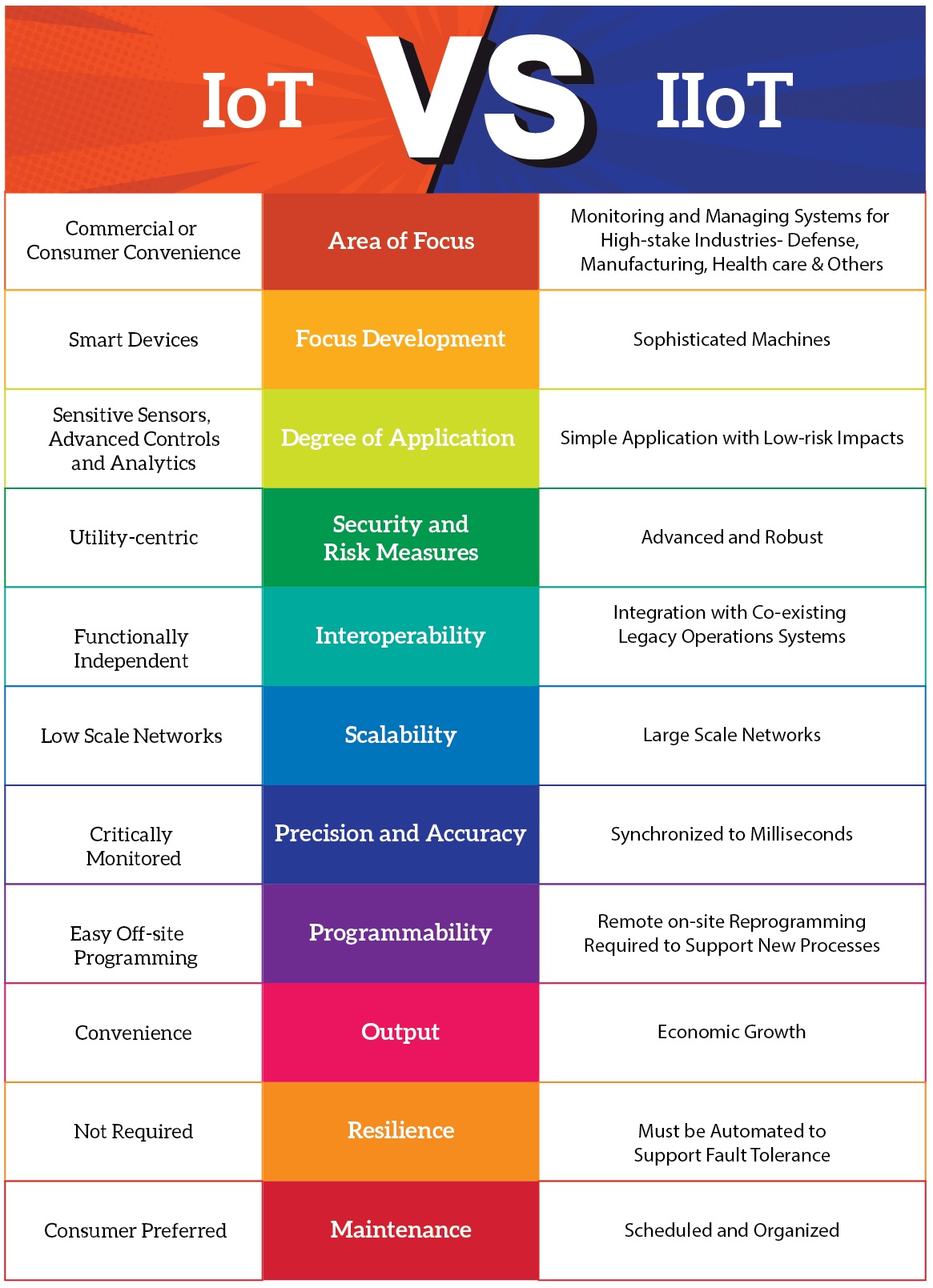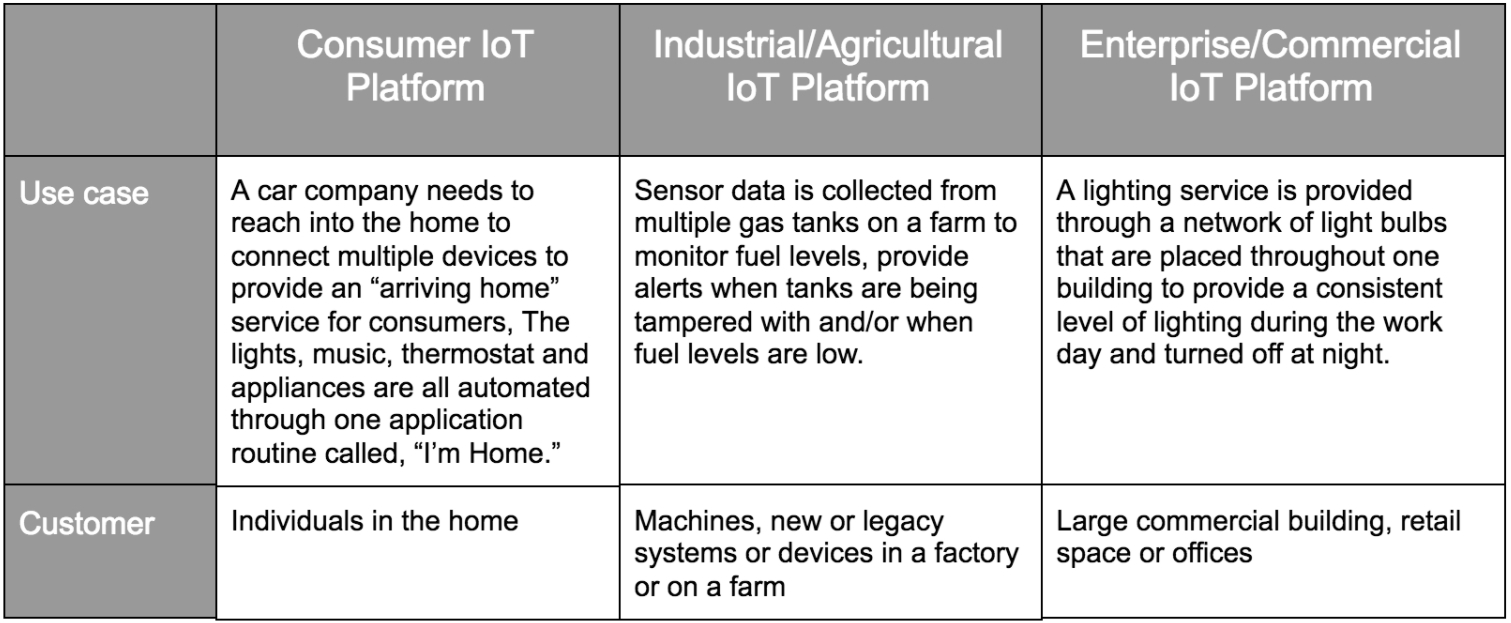Consumer vs Commercial vs Industrial IoT Types Compared

With 2021 setting off the stage for boom in Smart applications & products due to 5G connectivity, the connected ecosystem is expected to reach upwards of 10 billion+ IoT deployment worldwide. It has been dubbed by researchers & scholars as the fourth industrial revolution.
Within the connected device ecosystem, we can further categorize the devices into consumer, commercial & industrial types.

Consumer IoT
As the name states, this category focuses on the end consumers, notably via smart home & wearables. Examples include smartwatch, smart security system, smart doorbell, smart thermostat. They are typically easy to install and are DIY do-it-yourself applications. Often, each device system has smartphone application that can be used to monitor and control each product accordingly. Also, the device itself can use existing wireless protocols such as WiFi, Zigbee, Z-wave or Bluetooth for inter-operability and mass market appeal.
Commercial IoT
This type of connected devices are also similar in design as consumer products, except they are directed towards commercial businesses. Target customers would be stores, offices, hotels, supermarkets and schools. They typically require larger quantities of devices and has much stringent security requirement. For example, a hospital that uses these wireless IoT solutions will need the end devices to connect to a central monitoring station which may alert nurses immediately or automatic broadcast in case of emergency. Because the premise covered is much wider, besides Zigbee, Z-wave & WiFi protocols, Sigfox, LoRa, NB-IoT and Weightless may also be used.
Industrial IoT
This type of connected things are targeted towards industries to improve efficiency. Customers examples include oil & gas, fleet management, institutions, smart cities and factory automation. The deployment sizes for industrial use could potentially be much larger than household or commercial use, so an even more sophisticated software platform will need to be integrated for scalability. The gateway would serve as the main central control station for collecting all the data from the end sensor nodes, and then it would upload the information onto cloud server for analysis & diagnosis. Industrial IoT (IIoT) is also characterized by customized IoT solution that caters to each specific industry.
For any inquiry or projects, please contact our specialists for more information.

